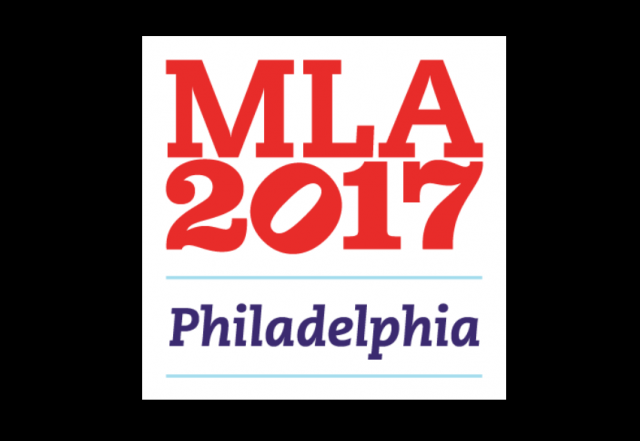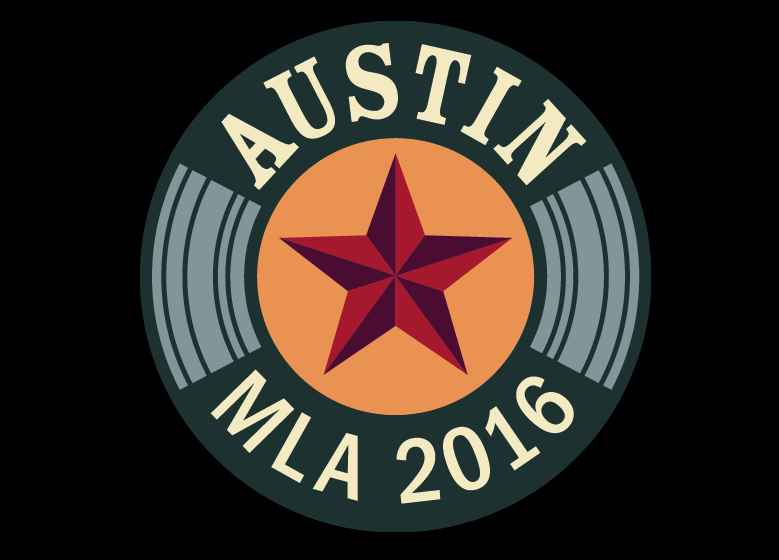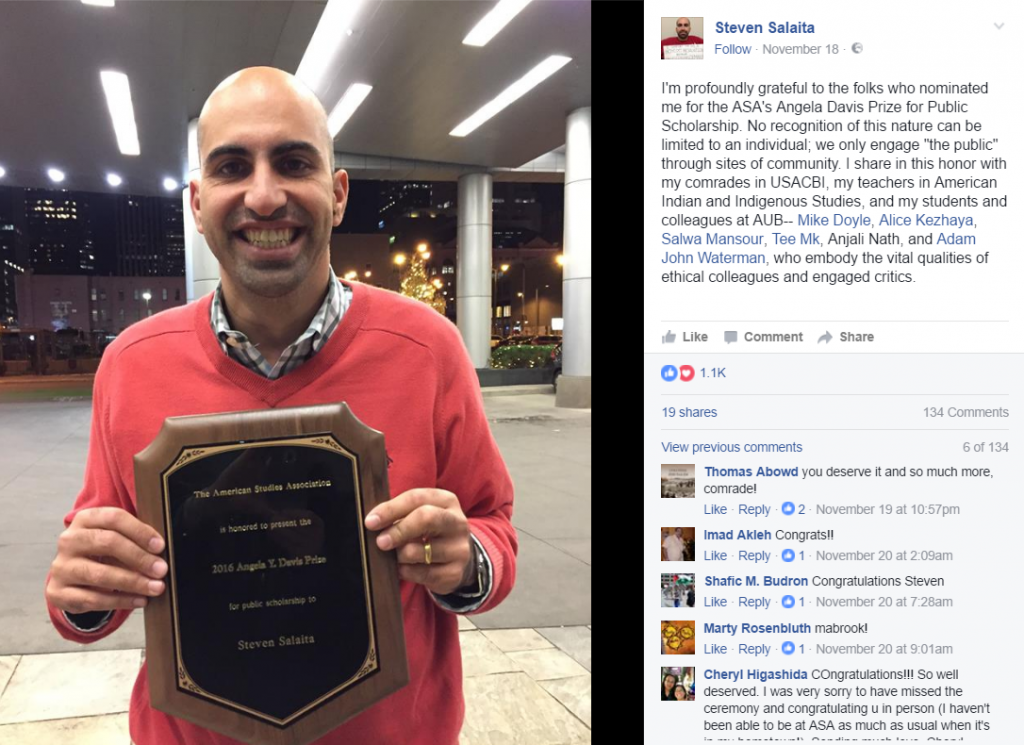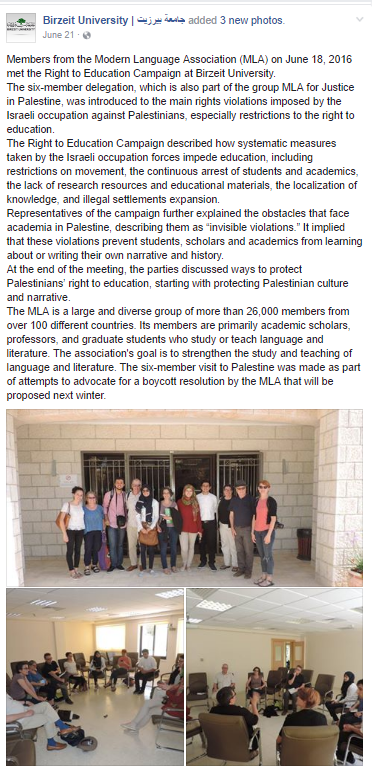Israel Boycott vote at Modern Language Association on January 7
Three Israel-Related Resolutions: Pro-boycott, Anti-boycott, and Condemnation of Palestinian persecution of their own academics.

The Modern Language Association is at it again: at this year’s annual MLA meeting in Philadelphia, academic boycotts of Israel are on the agenda. Thus continues the Settler Colonial attempt by the Boycott, Divestment, and Sanctions movement (BDS) to hijack American faculty organizations.
The 24,000 member organization, comprised of faculty in the fields English and other non-classical foreign languages, will be debating (again) whether to boycott their colleagues in Israel, and would extend to the Academy of the Hebrew Language.
The vote on January 7th involves the 297 members of the Delegate Assembly.
There are three resolutions being put before the Delegate Assembly: one in favor of a boycott of all Israeli universities; the second, opposing academic boycotts in general; the third, condemning the suppression of academic freedom at Palestinian universities by the Palestinians themselves (the Palestinian Authority and Hamas).
Should any resolutions pass at the Delegate Assembly, they will then go to the general MLA membership for ratification.
Only ratified resolutions are binding on the MLA as a corporate body. In order to be ratified, the resolution must: (1) receive the majority of votes cast; and (2) the ‘yes’ votes must represent at least 10% of MLA’s membership (approximately 2,400 votes, given the current membership numbers) in order to constitute quorum.
Below I go over the expectations as to how this will play out, and then the history and analysis of anti-Israel boycott efforts at MLA.
What to Expect
It is difficult to predict what the results in Philadelphia’s meeting will be.
Based on the signatures affixed to the two petitions (one in favor of the boycott, one against) published online, we learn that of those delegates who have signed either petition, boycotters outnumber those opposed to boycotts by nearly 2:1. On the other hand, only about 36 out of the 297 members, i.e. approximately 12 percent of the delegates, signed either petition.
This reflects the pattern we’ve seen in other organizations: the vast majority of the membership is not interested in grandstanding political resolutions, but of those that do take interest, most favor the radical position. Thus, a small but committed minority can, by virtue of single-minded commitment among their ranks, create a distorted image of the level of ground support for their initiative, and, more importantly, can pass resolutions that potentially bind the entire organization. There could be dire consequences when a small minority binds a large organization, as there already a threat of a lawsuit against MLA if it passes a boycott resolution.
This pattern played out in the American Anthropological Association last year in Denver. At the AAA meeting in Denver, an overwhelming majority of delegates present at the meeting voted in favor of boycott. This created the impression of a majority of North Korean proportions favoring boycott. In fact, however, once the vote went out to the vote of the membership at large, the picture changed drastically. The general membership (of which 51% voted) voted the boycott down by a margin of 39 votes (2,423 to 2,384).
So far, votes supporting the boycott of Israeli universities have only been undertaken in marginal associations, far removed from the mainstream of the academy: the African Literature Association, Association for Asian American Studies, Association for Humanist Sociology, Critical Ethnic Studies Association, National Association of Chicano and Chicana Studies, Native American and Indigenous Studies Association, Peace and Justice Studies Association, and the American Studies Association.
The near adoption of boycott by the American Anthropological Association last year represented the first time a major discipline was seriously considering it. Anthropology has travelled a long distance from its heyday as an aspiring science and nowadays often represents the vanguard of far left politicized scholarship in the academy (dominated by the narratives of post-colonialism and intersectionality, together with Anthropology’s historic fixation with cultural relativism). Thus it was no surprise to experienced observers that Anthropology would be the first association to attempt a boycott resolution. When even Anthropology turned boycott down, it could be seen as a sign that boycott is still far from being an acceptable position within the mainstream of the academy.
But while Anthropology may be the most radical major discipline, the AAA is not necessarily the most radical professional association of the mainstream academic disciplines, nor, is it, in any case, alone in the wilderness of radical chic. Close competitors of the AAA are the Middle East Studies Association and the Modern Language Association, both of whom have been toying with BDS for several years, but have yet to seriously take it up.
https://www.facebook.com/photo.php?fbid=10211030339217708&set=a.10200696811685978.1073741825.1331876464&type=3&theater
MLA History of Radicalism and Anti-Israel Activism
MLA’s history of radicalism goes back to the late 1960’s. In 1968, a small group of radical left wing MLA members organized themselves into the “Radical Caucus”. By 1971, self-declared ‘radical’, Louis Kampf, was MLA president, declaring, in his Presidential Address, that the teaching of literature had virtually ended and that literature was nothing but a diversion and a spectacle.
In 1994 a group of academics, self-described as “tired of lamenting the overly politicized debate about literary study in the academy”, formed the breakaway Association of Literary Scholars, Critics and Writers (ALCSW). Yet the MLA remains the dominant professional association in literature and languages.
In 2004, the New Criterion wrote:
The jury is still out in the great contest for the most discredited academic organization in America. The contenders are many. The competition is fierce. Almost every discipline in the humanities and social sciences has fielded an impressive team…Nevertheless, when it comes to awarding the palm for betraying an intellectual legacy, consistency and stamina–the ability to compete true to form year in and year out–count as much as momentary awfulness or isolated star players. And considered from this long-term perspective, no organization has performed so badly for so long as the Modern Language Association, the largest and most risible organization of academics in the country.
If an item is hot on the far left (and especially if it has nothing to do with the study of literature), one can count on the Radical Caucus of the MLA to put it front and center. BDS, the cause célèbre of anti-Western academics everywhere, was sure to follow.
Nevertheless, as recently as 2002, the MLA Delegate Assembly approved a resolution condemning:
…boycotts and blacklists against scholars or students on the basis of nationality, ethnic origins, and religious background as unfair, divisive, and inconsistent with academic freedom.
But times have changed…
(a) 2007 – Anti-Israel Effort Begins
In the 2007 MLA Convention, the Radical Caucus made its first attempt to target Israel, putting forth a resolution defending the right to criticize Israel. After a bitter contest, the language was changed to a right for professors to address the Middle East “in the manner they choose”, not singling out any particular group or country.
In 2008, the MLA passed a resolution “endors[ing] teaching and scholarship about Palestinian culture, support[ing] members who come under attack for pursuing such work, and express[ing] solidarity with scholars of Palestinian culture”

At the 2014 meeting in Chicago, two anti-Israel resolutions were voted on. (See here; here; and here for our coverage)
The first, passing by a 60-53 vote, after undergoing significant modifications, “urge[d] the U.S. Department of State to contest Israel’s denials of entry to the West Bank” of American academics “invited to teach, confer, or do research at Palestinian universities”.
Originally the resolution described these restrictions as “arbitrary denials” and also referred to Gaza. The word ‘arbitrary’ was removed, while Gaza was taken out completely, after it was pointed out that it is Egypt, not Israel, that controls the entry of academics to Gaza. Facts are the darnedest things.
Ratification, however, which required a majority vote, consisting of at least 10% of MLA’s 30,000+ membership, failed. The tally was 1,560 in favor, 1,063 opposed. In other words, only 6% of the MLA body cared enough about this issue to vote.
The second vote at the MLA meeting, which failed 54-38, was an “emergency” resolution (also here) proposed by the Radical Caucus condemning “attacks” on the American Studies Association in wake of their 2013 resolution enacting an academic boycott on Israel. As an “emergency” resolution (i.e. not one previously on the agenda), it required a 75% approval in order to be considered for a vote.
(b) 2015 Vancouver: Vote to Postpone Boycott Resolutions until 2017

(See previous Legal Insurrection coverage here and here)
Two resolutions were submitted to the Delegate Assembly: One, submitted by David Lloyd [UC Irvine] and Rebecca Comay [University of Toronto], called for an academic boycott of Israel; the second opposed all academic boycotts.
The DAOC chair requested withdrawal of both resolutions and a two-year moratorium on any resolutions concerning Israel.
The moratorium was adopted 95 to 49.
Boycott supporters formed a “working group” to begin active work “over the next two years towards gathering support for the MLA resolution to endorse the Palestinian call for a boycott of Israeli academic institutions”. The organizers were Lloyd, Comay and David Palumbo-Liu (Stanford).

At the 2016 MLA conference in Austin, several debates and panels were devoted to BDS. As if to confirm the stereotype of modern literature scholars as analyzing everything in terms of race, class, and gender, the proceedings were summarized by resolution sponsor David Lloyd as “racism in defense of a racist state”. That, by the way, was not referring to the Palestinian Authority where Jews cannot buy land, but to Israel.
This brings us to the present…
Moratorium is Over …the Anti-Israel Campaign is Back
(1) Pro-Boycott Campaign
(a) Open Letter to MLA Members
The organized boycott campaign (MLA Members for Justice in Palestine) issued an “Open Letter” calling for boycott of Israeli academic institutions. The letter has received upwards of 429 signatures so far (12/14/16).
The letter opens:
As members of the Modern Language Association and scholars of literature and language, we express our dismay at the humanitarian catastrophe unfolding on a daily basis in the territories controlled by Israel. Given the long-term failure of diplomacy alone to resolve the deteriorating situation, we feel compelled to identify the injustices, speak out against them, and support the Palestinian appeal for boycott, divestment, and sanctions (BDS) of Israel….”
…Specifically, we call on the State of Israel to:
- End the siege and blockade of Gaza, end the occupation and colonization of all Arab lands occupied in June 1967, and dismantle the illegal settlements and the walls;
- Recognize the fundamental rights of the Arab-Palestinian citizens of Israel and the Naqab (Negev) Bedouins to full equality; and
- Honor the right of Palestinian refugees to return as has been stipulated numerous times since UN Resolution 194.
We call upon our colleagues in the MLA and other scholars of literature and languages to join us in endorsing the academic and cultural boycott of Israeli institutions.
It's boycott time, MLA members! https://t.co/kRVEgriNx2
— Bruce Robbins (@BruceRobbins6) December 16, 2016
(b) BDS Resolution for MLA Meeting
Meanwhile, the Resolution proposed this year seems identical to the one proposed by Lloyd and Comay (this year’s sponsors as well) in 2015. Here it is in its entirety:
MLA RESOLUTION TO ENDORSE THE BOYCOTT OF ISRAELI ACADEMIC INSTITUTIONS
Whereas the MLA affirms: “When academic freedom is curtailed, higher education is compromised”;
Whereas the US materially supports Israel’s ongoing violations of human rights and international law;
Whereas these violations include the systematic denial of academic freedom and educational rights for Palestinian scholars and students;
Whereas Israeli universities are instrumental in perpetuating these violations;
Be it resolved that the MLA endorses Palestinian civil society’s call for the boycott of Israeli academic institutions; and
Be it further resolved that the MLA affirms the right of faculty and students everywhere to advocate for the boycott of Israeli academic institutions, without retaliation.
Technically, resolution merely “endorses” the Palestinian boycott. Arguably, this differs from the American Studies Association’s “endorses and will honor the call…”, which explicitly binds that organization to BDS.
Some may choose to highlight this feature to persuade those concerned with binding their organization to a boycott, as well as a possible defense, should the boycott be challenged legally, as it was with the ASA.
On the other hand, in the FAQ prepared by resolution sponsor Comay, this binding is explicitly claimed:
1. “What would an MLA sponsored boycott entail?
If the MLA membership passes a resolution in support of academic boycott, this would commit MLA as an organization to suspend official ties with Israeli academic institutions.
Further details are available on Comay’s MLA Commons Page, including a commitment:
…the MLA as an organization to desist from institutional collaborations with Israeli universities or governmental organizations and their representatives (e.g., no research center partnerships, no co-sponsorship of conferences, etc.). It would also express the belief that individuals should not engage in institutionally supported collaborations.
The immediate, concrete, practical implication for the MLA as an institution is that it would not engage in collaborations with Israeli state institutions. It would not, for example, co-sponsor an international conference with Israeli institutions…
This, over and above “our responsibilities as individual scholars” to shun all funding, formal positions, conferences, academic honors, study abroad projects, publishing papers in Israeli journals, reviewing dissertations or submitting letters of recommendation involving colleagues at Israeli institutions.
2. “Supporting Evidence Document”
The campaign has released a “supporting evidence document”, linked to on the resolution page (an excerpted version is available on the resolution page itself).
Some highlights:
I. Whereas the MLA affirms: “When academic freedom is curtailed, higher education is compromised”; The central statement of academic freedom in this country is the “1940 Statement of Principles on Academic Freedom and Tenure” formulated by the American Association of University Professors (AAUP) …The Modern Language Association endorsed this statement in 1962 and has a long record of supporting its principles. The MLA reaffirmed its endorsement of this document in 2009.
Remarkably, reference is made to the AAUP, which has been prominently against academic boycotts in general and against the academic boycott of Israel in particular, precisely on the grounds that boycotts curtail academic freedom and compromise higher education. (Here is the AAUP’s statement against boycotts).
One can dispute in good faith the AAUP’s position on academic boycotts. One can even dispute in good faith the AAUP’s interpretations of its own principles. But one cannot in good faith invoke those principles without mentioning the AAUP’s own explicit position.
IV. Whereas Israeli universities are instrumental in perpetuating these violations;
Israeli universities feature high levels of integration with the state and its projects, including development of military equipment used to maintain the occupation and the siege against Gaza, and the continuing dispossession of and discrimination against Palestinians in both Israel and the territories it controls. Israeli academic institution contributions take several forms, from the development of military hardware, especially of automated systems, to demographic and hydrological studies underwriting the ongoing eviction of Palestinians on the West Bank and East Jerusalem, and the appropriation of West Bank aquifers.
This was quoted here in full to emphasize how silly this liberal interpretation of ‘instrumental’ is. This is an attempt to whitewash a scandalously widely cast net as a well thought out indictment of particular offenses by Israeli universities, stemming from the obvious criticism that in order to justify sanctions against particular institutions, one needs to demonstrate wrongdoing by those very institutions, something a blanket boycott against all institutions in a country blatantly fails to do.
(For examples of the sorts of actions that might merit a boycott, see here. Unfortunately, this would involve boycotting Palestinian universities, which is not what these folks had in mind).
The examples cited are nothing of the sort. They’re standard university practices (R&D; demographic studies), which produce knowledge and technology, which is then used by the Israeli government. Presumably, knowledge used by the Israeli government (and other governments as well) is produced in many universities worldwide (not just Israeli ones). Perhaps leaders of the Radical Caucus of MLA never suspected that their colleagues are in the business of producing knowledge in the first place, much less knowledge that is of interest to others.
Meanwhile, the longer version of the report, also contains this:
Not a single Israeli academic institution has condemned the Occupation or spoken out against the civilian death toll that Israel’s wars on Lebanon and Gaza have entailed.
It is odd that the MLA wants universities to speak out against or for anything. Universities generally are expected not to take political positions, precisely because doing so interferes with the academic freedom of the faculty.
Conditioning the application of the boycott on ideological affirmations is to apply a political litmus test. Here, is the AAUP on litmus tests:
We especially oppose selective academic boycotts that entail an ideological litmus test. We understand that such selective boycotts may be intended to preserve academic exchange with those more open to the views of boycott proponents, but we cannot endorse the use of political or religious views as a test of eligibility for participation in the academic community.
3. “Report” on Members’ Trip to the West Bank and Israel
Over the summer, six MLA members involved in the campaign, attended a ‘fact-finding’ mission in Israel and the West Bank, resulting in a 23 page ‘report’. The six members were Comay and Lloyd (the resolution’s sponsors) as well as Margaret Ferguson and David Simpson (both of UC Davis), Lenora Hanson (University of Wisconsin graduate student and member of the MLA Executive Council), and Julie Rak (University of Alberta).
The group met with representatives of six West Bank universities “as well as both Palestinian and Jewish academics and students from a number of Israeli universities”. The Israelis seemed to have consisted solely of those who are “opposed to the current regime”.
In contrasts to Israeli universities that stay out of politics, the members seemed to be receiving the official aid and endorsement of at least one Palestinian university
The report mentions few names, yet we learn that those the members met were preselected, with little attempt made to solicit dissenting views from Israeli or Palestinian society, if only for some context. In fact, the group was ‘surprised’ to discover:the unanimity with which the Palestinians whom we met– students, professors, and administrators alike–supported BDS, and in particular the boycott of Israeli academic institutions
The writers find what they want to find and rarely seek to question what they already believe.
The report describes the difficulties of undergoing security checkpoints, without mentioning why they exist in the first place. Apparently, the Israelis simply like to view the undergarments of Palestinians entering the airport.
In fact, the authors of the report couldn’t even bring themselves to refer to ‘Israel’ without adding immediately: ‘(often called by our Palestinian interlocutors “48 Palestine”…)’. This was not intended, one presumes, as criticism of their interlocutors’ maximalist territorial ambitions.
The few attempts at factual assertions in the report don’t give one great confidence in the authors’ grasp of facts. For instance:
- Palestinians ‘lack full “democratic” rights: they are citizens but not “nationals” of a state where nationality rather than citizenship determines access to privileges and rights”. This is complete nonsense. Israeli Arabs, are citizens and nationals of Israel. As citizens they enjoy all ‘democratic’ rights (the right to vote, to run for office, to a fair trial, etc.).
- There is a complaint that university entrance exams are in Hebrew. The language of instructions in most Israeli universities is Hebrew. Just as the language of instruction in most U.S. universities is in English. But even this claim is false. In fact, unlike the SAT, which is only offered in English, the Israeli SAT equivalent (the Psychometric Exam) can be taken in one of several languages, including Arabic!
- “Financial aid is tied to military service”. This is only partly true. There is financial aid for veterans: surely a reasonable and fair arrangement for those who devote three of the best years of their life to their country (often at risk to their own lives). But that is far from the only form of financial aid available (e.g. a list of scholarships specifically targeted to the Arab population).
- The report then falsely claims that financial aid “is thus unavailable to Arab Palestinians though not to Christian [sic] Druze)”. There is some debate among scholars whether the Druze are Arab, much less Arab Palestinians. There is also some debate about what exactly the tenets of the Druze religion are (given that it is an esoteric faith), and whether it should be counted as part of Islam. But there is absolutely no question that the Druze are not Christian. This mistake, in a report by academics, is profoundly embarrassing.
(2) The Opposition
The opposition to the boycott campaign is led by MLA Members for Scholars’ Rights (MMFSR), which also led the opposition to the 2014 boycott resolutions and has been active ever since. The group consists of MLA members who:
Over 300 signatures in a week! If you are a current or former #MLA member, please consider signing our petition against academic boycott. https://t.co/zEQas05F6d
— MMFSR (@ScholarsRights) December 5, 2016
(a) Counter-Petition
A petition (as of Dec 14) opposing the boycott has 350 signatures (as of Dec 14).:
Some of the points made include: that the resolution would “alter the organization’s core mission…would divide the organization and politicize it”, that boycotts would “subvert the principled commitment to the free exchange of ideas”, as well as some more detailed rebuttals to the claims made in the pro-Boycott petition and supporting documents. The petition also contains some informative endnotes. In particular, endnote [iv] elaborates the extensive list of violations of academic freedom for Palestinians by the Palestinians themselves. A version of this was published by Prof. Cary Nelson (University of Illinois), MMSFR member and former President of the AAUP, here and here.
(b) Response to “Myths and Facts”
Nelson has issued an elaborate response to the Myths and Facts memo released by the boycott campaign, pointing out that ‘boycotts’ discourage and block contact between academics, creating a ‘hostile environment’ for those who seek to collaborate with Israeli scholars, and that the boycott bars contact between Israelis and Palestinians themselves, due to BDS’ ‘anti-normalization’ campaign.
[David Lloyd (Riverside), one of the resolution’s sponsors, admitting what he really thinks about Israel’s right to exist]
Nelson excoriates MLA’s boycott activists who “unrealistically imagine it is possible simultaneously to embrace an international boycott movement and to claim that their boycott is different from all others”. He adds:
We now have fifteen years’ evidence that boycott resolutions, however framed, encourage individual faculty to come up with their own boycott plans, denying Israeli students entrance into degree programs and discriminating on the basis of nationality, ethnicity, or religion. The idea that an MLA boycott will avoid such consequences is an unsupportable fantasy.
Also mentioned are the intentions of the boycott’s movement, whose “most prominent national and international advocates have all urged the actual elimination of the Jewish state”, stating that it “naïve” to think that “that the MLA can join an international movement and not be identified with its goals… A boycott endorsement would tie the MLA to a policy of abolishing the State of Israel.”
The MLA is called out for hypocrisy in its:
exclusive focus on Israel turns a blind eye to all other nations who are infinitely more serious violators of human rights than anyone can rationally claim Israel is. More Palestinians were slaughtered in Jordan in 1970 and in Syria over the last five years than have died in all of Israel’s wars…Academics are under siege in Turkey, and the wave of executions in Iran continues unabated. On all this, BDS proponents in the MLA remain smugly silent.
Finally:
Endorsing an academic boycott may not destroy the MLA, but it will fundamentally alter the organization’s character and lead many members to resign…A vote for the boycott would redefine the MLA as a partisan organization on the radical fringe, eclipsing its historical mission of the nonpartisan promotion of literary and foreign language study and to the defense of the humanities as a whole. Those goals would be irreparably damaged if the MLA embraces BDS…
(c) Counter-Resolution
The following counter-resolution, opposing the boycott, is also on the agenda for the meeting. The resolution reads as follows:
Whereas boycotting Israeli universities contradicts MLA’s purpose to promote teaching and research on language and literature,
Whereas boycotting universities and refusing to evaluate work of Israelis conflicts with Resolution 2002-1 which condemns boycotts against scholars,
Whereas honoring the Palestinian Campaign for the Academic and Cultural Boycott of Israel entails ending dialogue between Israelis and Palestinians which would block convention sessions involving such dialogue,
Whereas the boycott, applied to MLA’s commercial transactions, would prohibit sales of MLA publications including the Bibliography to Israeli universities, reducing MLA income,
Be it resolved that MLA refrain from participating in a boycott of Israeli universities.
(d) 3rd Resolution
Additionally, a 3rd resolution, condemning Palestinian violations of academic freedom is on the table (referencing the 2008 resolution endorsing Palestinian culture):
Whereas Resolution 2008-1 recognizes the importance of the conditions in the West Bank and Gaza for modern Arabic literature,
Whereas scholarly pursuits in Palestinian universities are constrained not only by the conditions of occupation but also by disregard for academic freedom on the part of Palestinian organizations,
Whereas repeated attacks on the academic freedom of Palestinian scholars and students by Palestinian political organizations have been documented,
Be it resolved that the MLA condemn all limitations on academic freedom in Palestinian universities, including those perpetrated by the Palestinian Authority, Hamas, student groups associated with those organizations and other political groups.
Conclusion
It’s not yet clear who is likely to prevail at the MLA meeting in Philadelphia. For what it’s worth, three members of the Executive Council (Emily Apter, NYU; David Palumbo-Liu, Stanford; Lenora Hanson, Wisconsin) have signed the pro-boycott letter. None have signed the opposition’s letter.
Please vote NOW in MLA elections. For EC it is absolutely critical to vote for Hanson and Lyon!!! URGENT
— MLAMJP (@MLAM4JP) October 24, 2015
If the past is any guide, it is sure to be a circus. That said, in order for whatever resolution that is adopted at the meeting to be ratified, it needs to win a vote with the overall MLA membership, and it must obtain at least 10% of the total membership’s vote in the process. That will probably be too high a hurdle to pass for any of the three resolutions.
Were the Delegate Assembly to pass the BDS resolution at the meeting, the boycott contingent will no doubt attempt to portray this as a major victory, regardless of whether they succeed in ratification.
These resolutions appear over and over again in organization after organization. Last year, it was Women’s Studies (which passed BDS) and Anthropology (which ultimately didn’t). Soon, it is likely to be Middle East Studies. At the American Historical Association, debates over anti-Israel resolutions are becoming a yearly tradition. Eventually, most people get tired of this; except, of course, for the single-minded zealots who make up groups like the MLA Radical Caucus, Historians Against the War, etc…in other words, those professional agitators who are paid for scholarship but engage exclusively in ‘activism’.
BDS is led by single-minded zealots whose idea of the academic life consists primarily, not in scholarship or enlightenment, but in provocation, agitation, and ‘social change’. For those opposing BDS, these resolutions are a tedious distraction from academic business. For the zealots, they are the raison d’etre of the academy.
Today's #FourthOfJuly/#IndependenceDay in the US: the national commemoration of ongoing settler colonialism on Natives' land. We oppose.
— MLAMJP (@MLAM4JP) July 4, 2016
To think that the path to victory or sanity is to continue to win votes at organizational meetings like these, especially when the other side lives for these votes, is both masochistic and futile. The true solution involves removing the authority of these organizations to usurp the mandate given by their paid members for the purposes of agitprop and theatrics. The solution to require a 10% quorum from the membership at large for a resolution to be binding is a step in the right direction.
So is the formation of rival organizations like the ALCSW. Should the resolution in Philadelphia pass, it is expected that more MLA members might defect and join the ALCSW. This is something that MLA members who think it appropriate to commit the organization at large to their political agendas might want to bear in mind.
Yet before MLA members choose to defect, they may want to stick around long enough to defeat that resolution when it is presented to the general body.
———————-
The author is a graduate student who must write under a pseudonym for fear of retribution from pro-BDS faculty.
 DONATE
DONATE
Donations tax deductible
to the full extent allowed by law.











Comments
Let’s face it, if some bolt of mythological magic were to remove ever attendee of this MLA conference to the nether regions, the world would not notice or be affected in even the tiniest way. (Yes, their next of kin might be sad, but then again they may just view as a nice windfall from an otherwise useless life)
These are people who in fact do nothing except lord their power to give increasingly meaningless pieces of paper to young job seekers. They produce nothing, they affect nothing, and it is probably their knowledge (at least at some level) of how incredibly useless and trivial their careers are that compels them to try and wield some assumed power over those who are far, far removed from their cloisters.
They are not only useless, they are worse than useless, because they do no good whatsoever and instead strive only to foment ill will. As far what they are supposed to be doing for a living – a set of Rosetta Stone DVD’s can completely replace every one of them permanently.
Their jobs should be abolished, their departments should be abolished, their “profession” should be abolished.
“Modern Language Association…”
Maybe there were once, but have been hijacked by leftists and are now a typical modern leftist, bigoted propaganda machine.
I hope that every single pro-BDS member of MLA is personally boycotting all Israeli products and discoveries especially anything medical or computer related. We wouldn’t want them to have to feel the shame of owing their life to something developed in Isreal, would we.